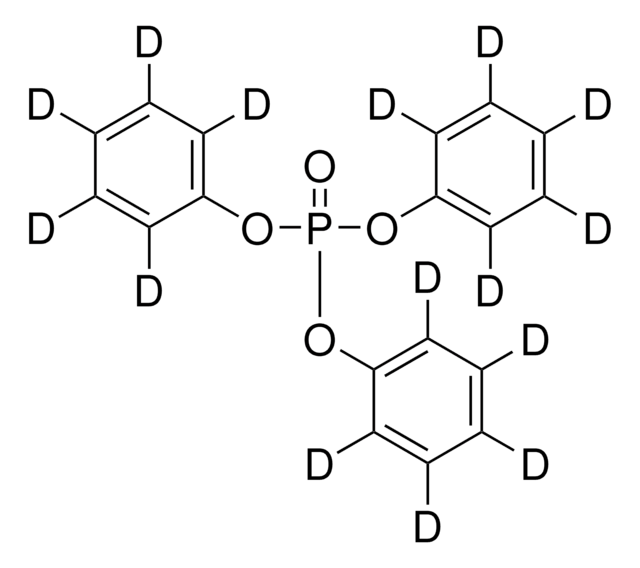24-2885
Phthalic acid
SAJ special grade, ≥99.0%
Synonym(s):
1,2-Benzenedicarboxylic acid
Sign Into View Organizational & Contract Pricing
All Photos(1)
About This Item
Linear Formula:
C6H4-1,2-(CO2H)2
CAS Number:
Molecular Weight:
166.13
Beilstein:
608199
EC Number:
MDL number:
UNSPSC Code:
12352106
PubChem Substance ID:
Recommended Products
grade
SAJ special grade
Assay
≥99.0%
form
crystalline
availability
available only in Japan
mp
210-211 °C (dec.) (lit.)
SMILES string
OC(C1=C(C(O)=O)C=CC=C1)=O
InChI
1S/C8H6O4/c9-7(10)5-3-1-2-4-6(5)8(11)12/h1-4H,(H,9,10)(H,11,12)
InChI key
XNGIFLGASWRNHJ-UHFFFAOYSA-N
Looking for similar products? Visit Product Comparison Guide
Signal Word
Danger
Hazard Statements
Precautionary Statements
Hazard Classifications
Eye Dam. 1
Storage Class Code
11 - Combustible Solids
WGK
WGK 1
Flash Point(F)
334.4 °F
Flash Point(C)
168 °C
Personal Protective Equipment
dust mask type N95 (US), Eyeshields, Gloves
Choose from one of the most recent versions:
Already Own This Product?
Find documentation for the products that you have recently purchased in the Document Library.
Christopher H Hurst et al.
Toxicological sciences : an official journal of the Society of Toxicology, 74(2), 297-308 (2003-06-14)
Phthalate esters are widely used as plasticizers in the manufacture of products made of polyvinyl chloride. Mono-(2-ethylhexyl)-phthalate (MEHP) induces rodent hepatocarcinogenesis by a mechanism that involves activation of the nuclear transcription factor peroxisome proliferator-activated receptor-alpha (PPARalpha). MEHP also activates PPAR-gamma
Russ Hauser
Seminars in reproductive medicine, 24(3), 156-167 (2006-06-29)
Scientific and public concern about the potential risk of environmental chemicals to male reproductive health has been heightened by reports of downward trends in semen quality, as well as increased rates of developmental urogenital tract anomalies and testicular cancer. Of
Paula J Lapinskas et al.
Toxicology, 207(1), 149-163 (2004-12-14)
Phthalate esters belong to a large class of compounds known as peroxisome proliferators (PP). PP include chemicals that activate different subtypes of the peroxisome proliferator-activated receptor (PPAR) family. The ability of phthalate esters and their metabolites to activate responses through
Maria Cristina Fossi et al.
Marine pollution bulletin, 64(11), 2374-2379 (2012-09-12)
Baleen whales are potentially exposed to micro-litter ingestion as a result of their filter-feeding activity. However, the impacts of microplastics on baleen whales are largely unknown. In this case study of the Mediterranean fin whale (Balaenoptera physalus), we explore the
Hanne Frederiksen et al.
Environmental science & technology, 47(2), 958-967 (2012-12-14)
Urinary phthalate excretion is used as marker of phthalate exposure in epidemiological studies. Here we examine the reliability of urinary phthalate levels in exposure classification by comparing the inter- and intrasubject variation of urinary phthalate metabolite levels. Thirty-three young healthy
Our team of scientists has experience in all areas of research including Life Science, Material Science, Chemical Synthesis, Chromatography, Analytical and many others.
Contact Technical Service







